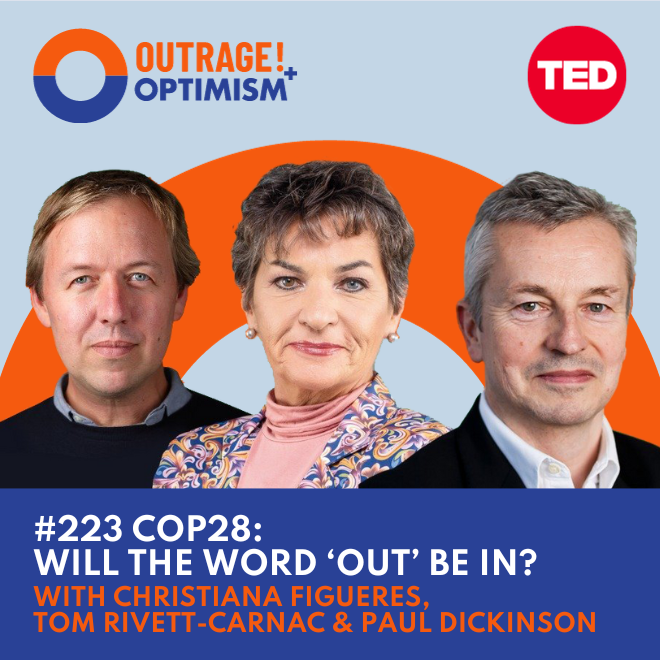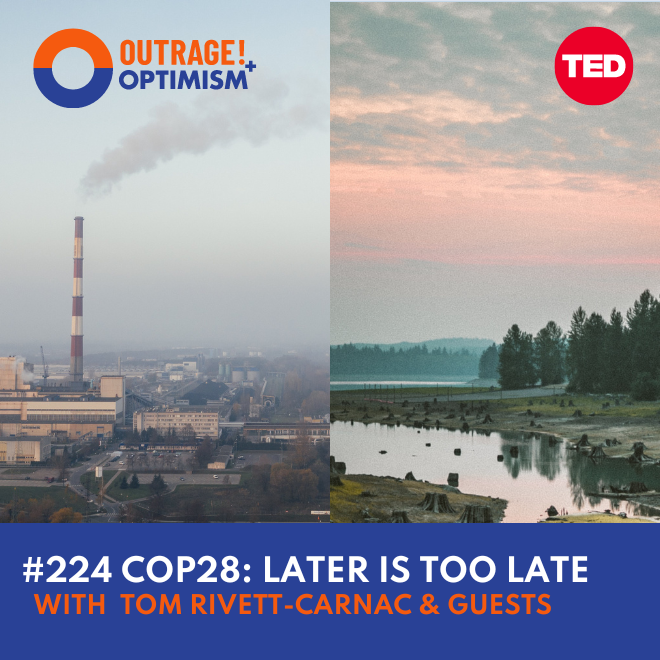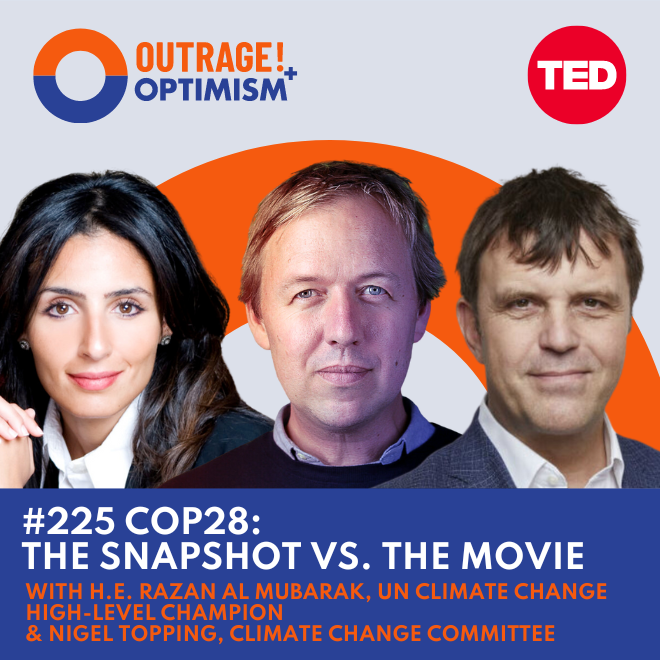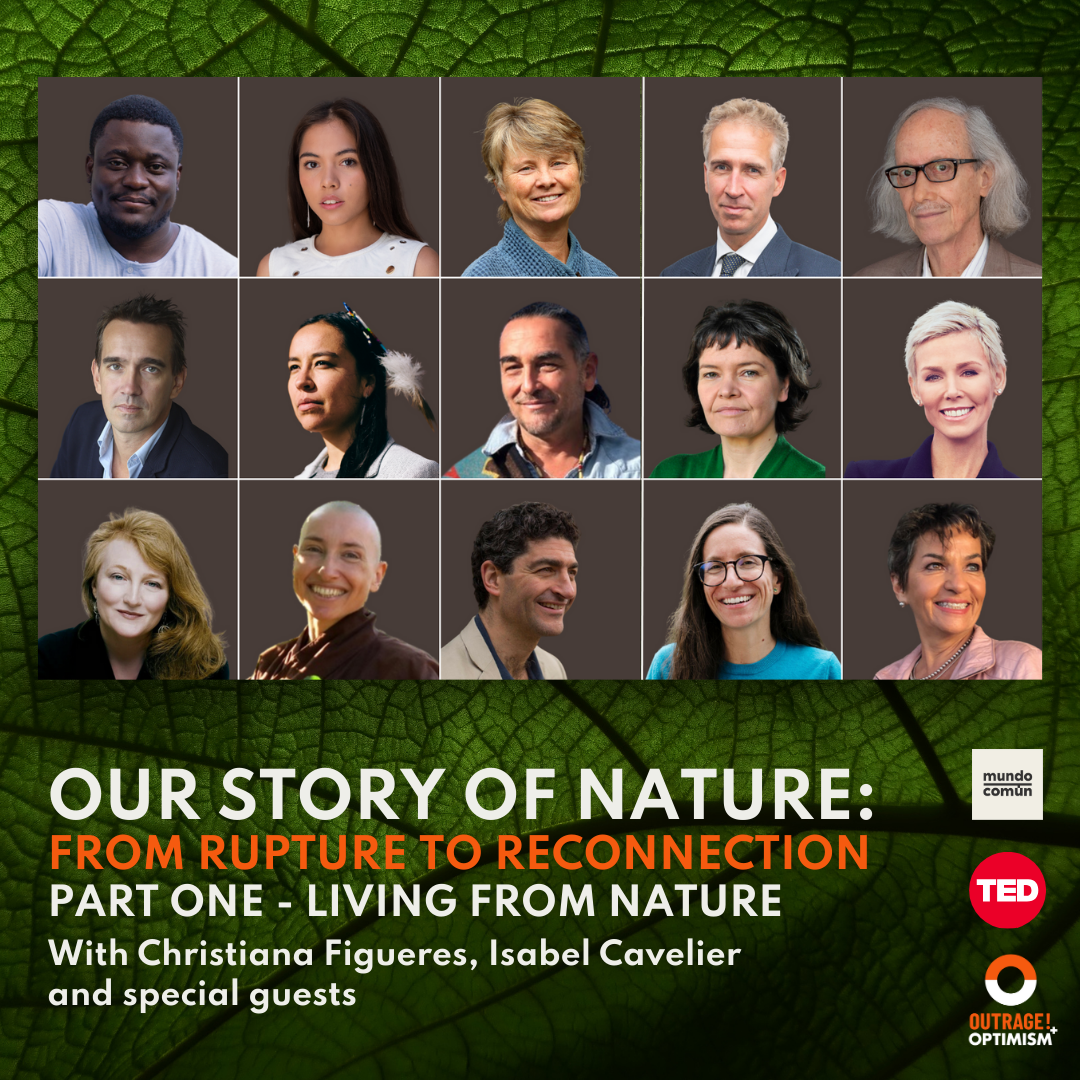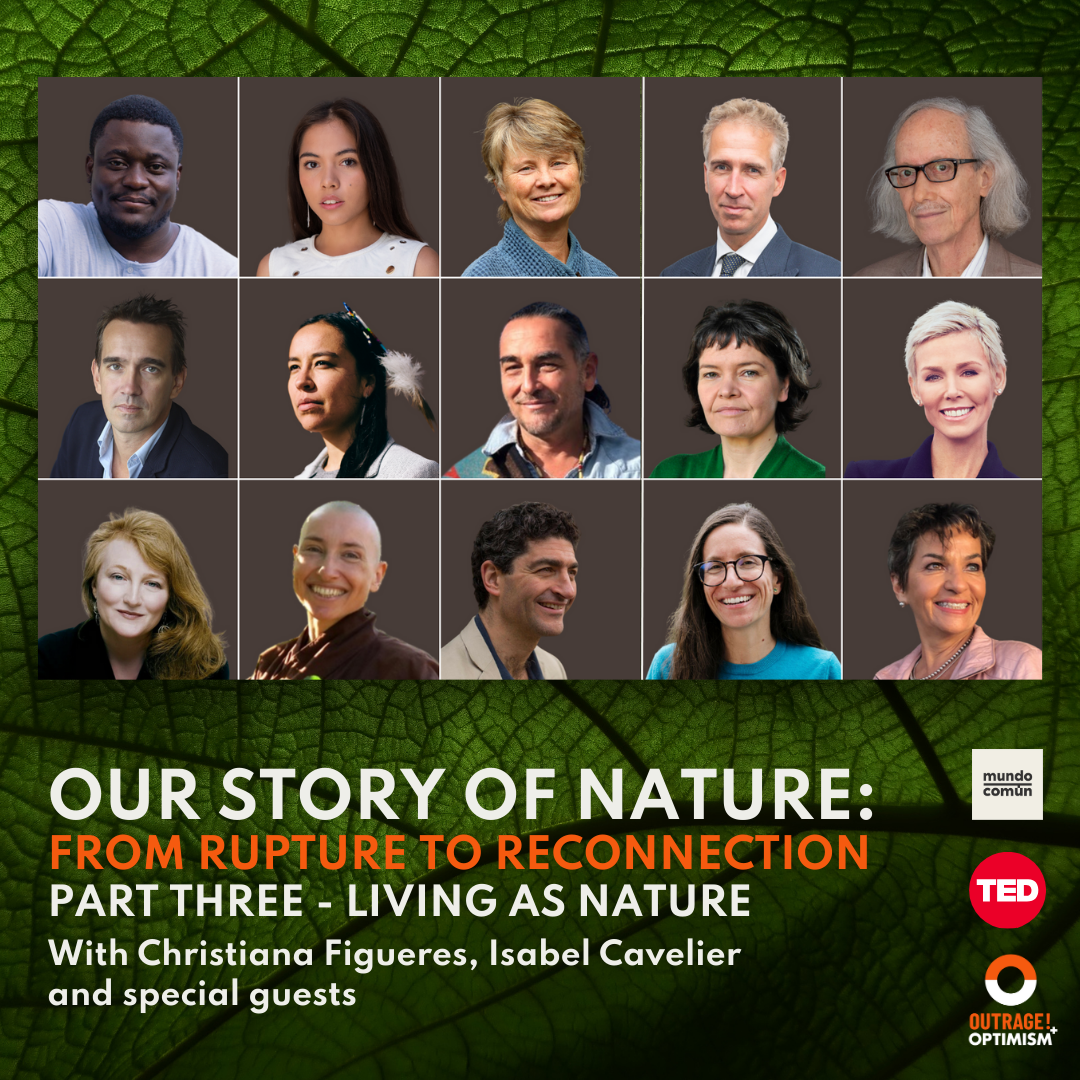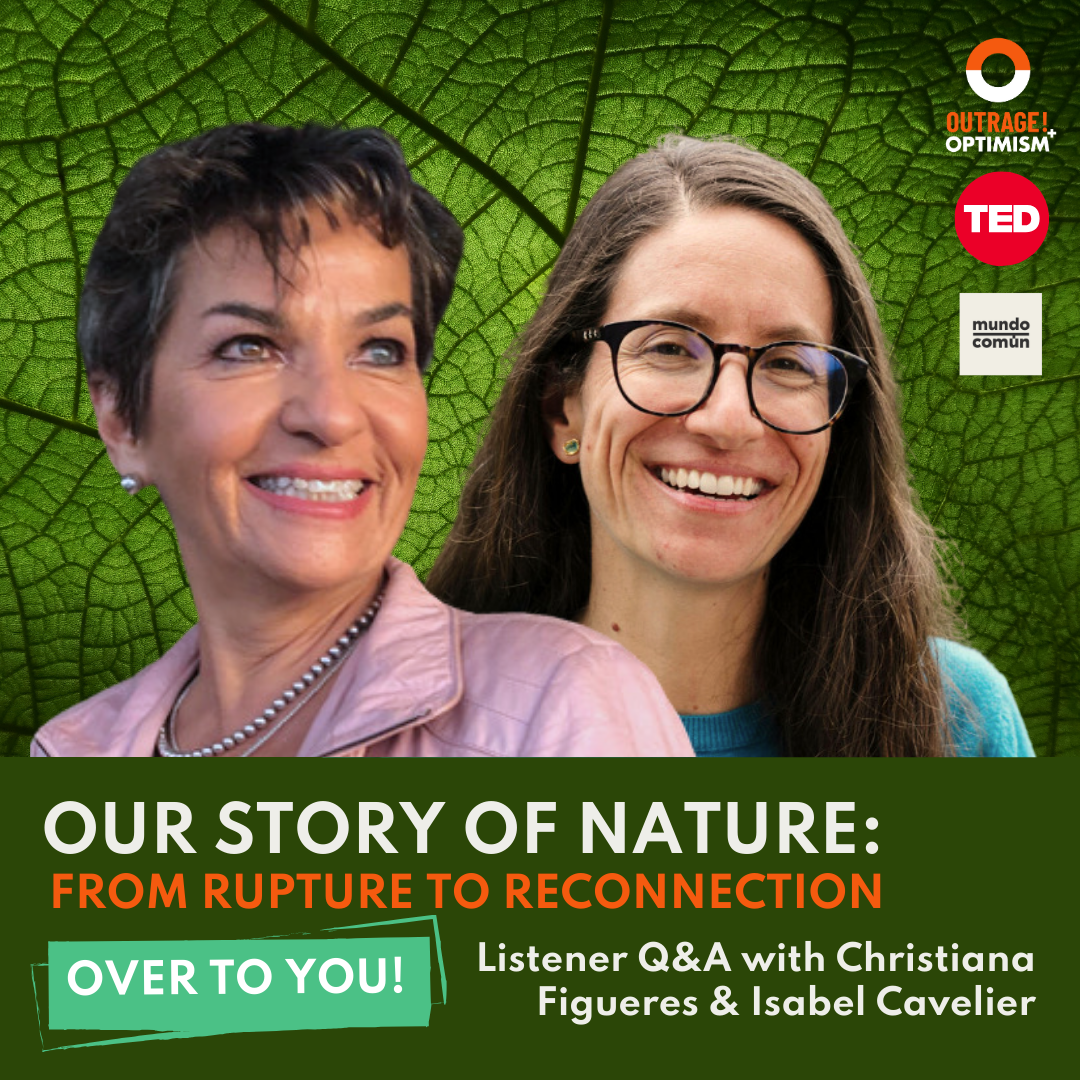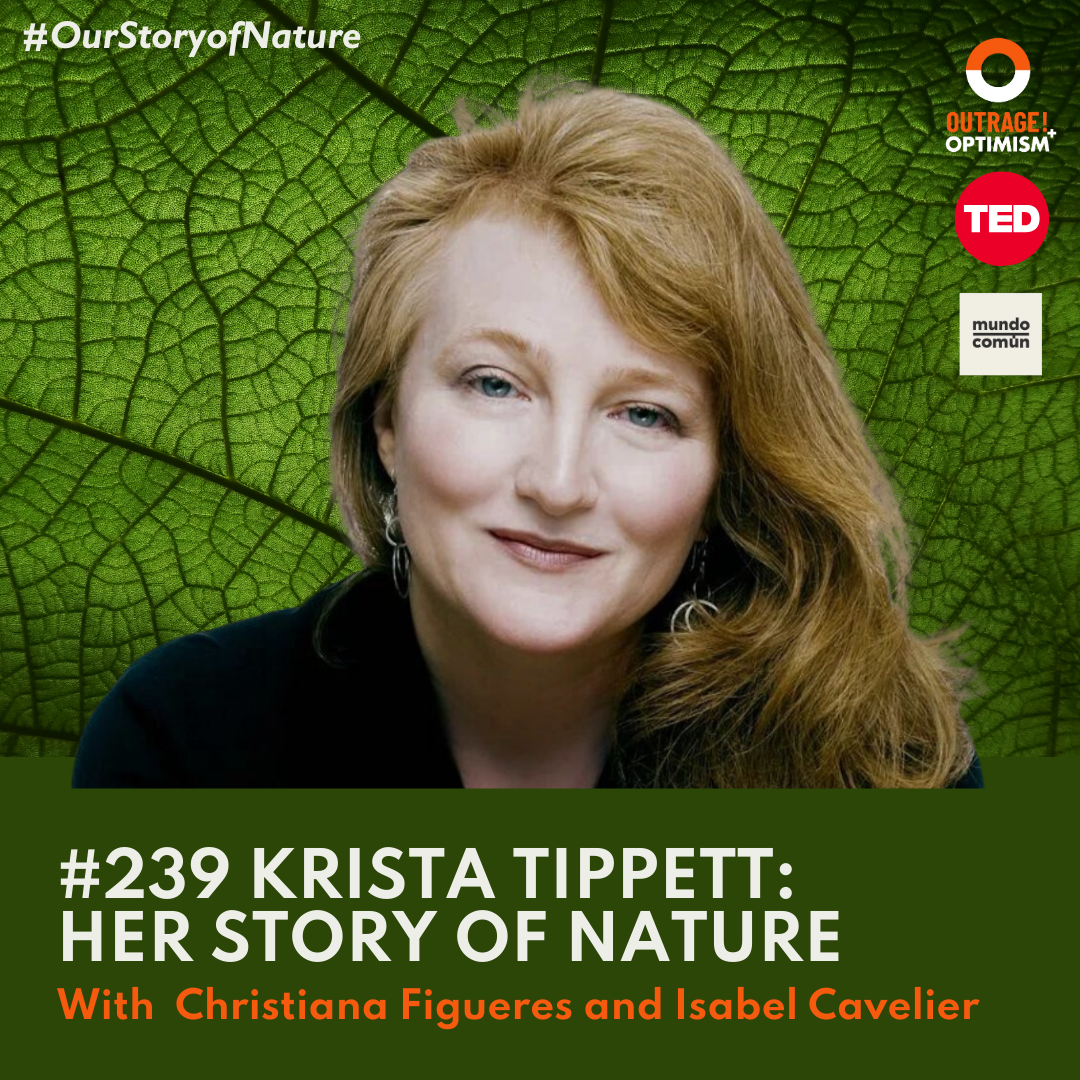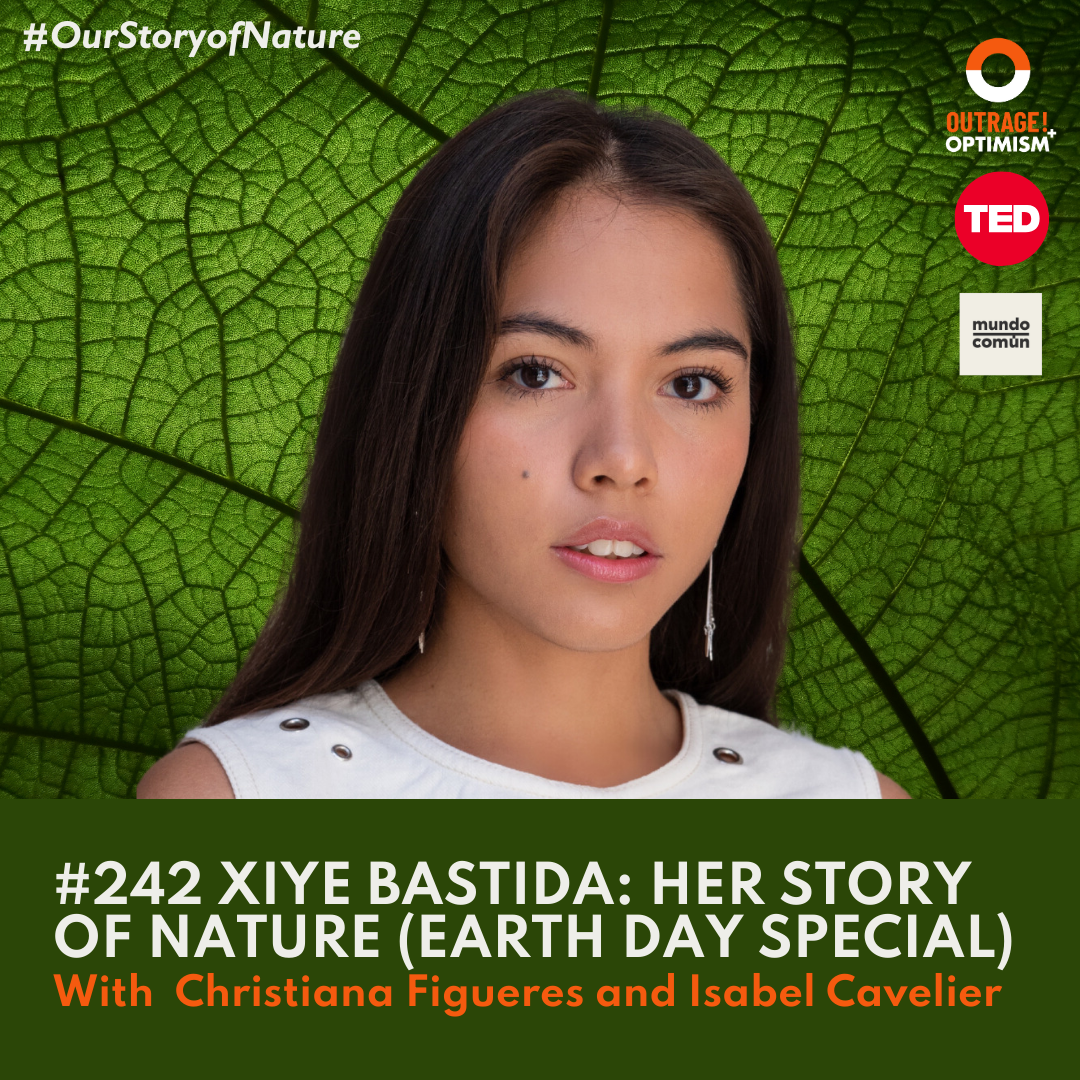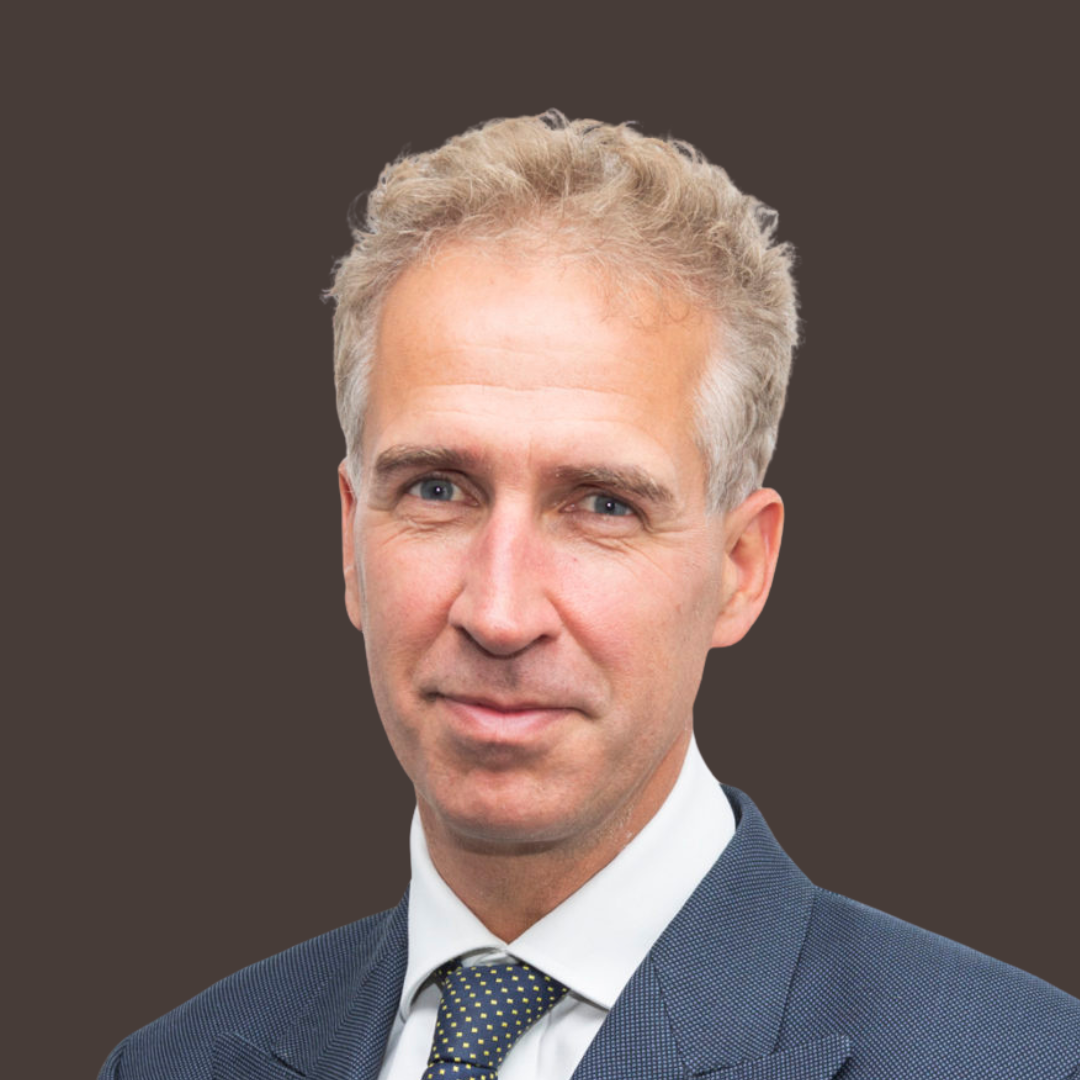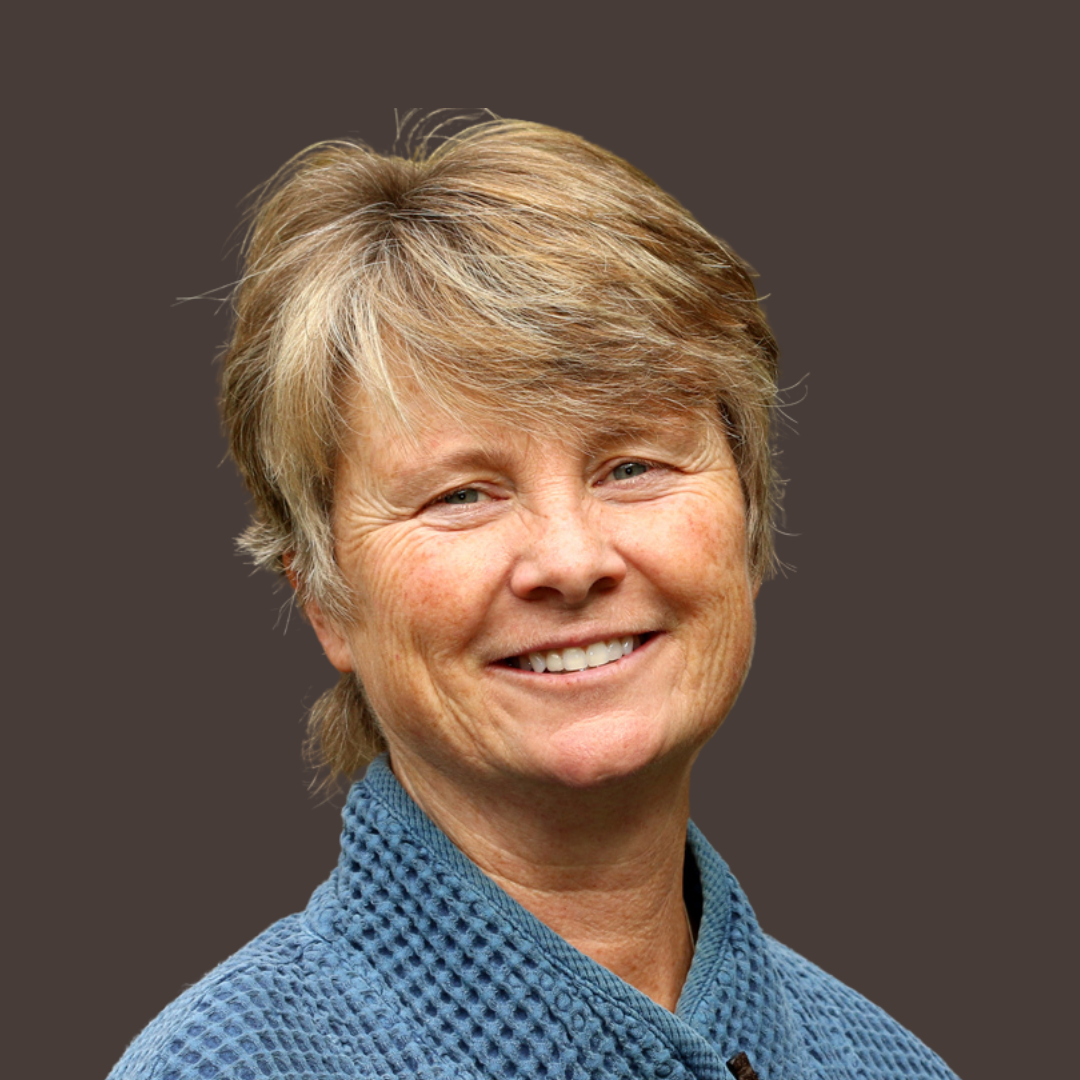231: Our Story of Nature: From Rupture to Reconnection
Part Two - Living With Nature
About this episode
This week, Christiana Figueres and her guest co-host Isabel Cavelier Adarve introduce the second episode in their mini-series, Our Story of Nature: From Rupture to Reconnection.
In this episode, Living WITH Nature, the hosts share a series of conversations with experts from the worlds of food, the economy, energy and design to illuminate how our man-made systems are rooted in a separation from the natural world. You’ll hear insight and fresh ideas from author Kate Raworth, Founder and Executive Chair, EAT Gunhild Stordalen, energy strategist at Rocky Mountain Institute Kingsmill Bond, author of the Earth Transformed: An Untold History, Peter Frankopan and co-founder of Biomimicry, Janine Benyus.
With appropriate outrage, Christiana and guests will explore how the climate crisis, the energy crisis, the inequality crisis and the food crisis all share the same deep root: extractivism based on extrinsic principles. They argue that this extractivism not only depletes the planet—the very soil of the Earth itself—it also depletes our human soul.
With characteristic and bold optimism, Christiana, Isabel and guests will argue that if we can overthrow the tyranny of GDP, invest in harvesting rather than in extraction, and if we design our world mimicking nature’s genius, we might yet create a future where humans and nature thrive in balance.
This episode is part of a series that shines a new light on humanity’s fundamental relationship with the rest of nature as key to responding to the climate crisis and to transitioning into a regenerative future.
Do not miss the third and final episode, Living As Nature, in which Christiana and Isabel invite listeners to contemplate what it will take for each of us to fully awaken to our interconnectedness as, perhaps, the starting point - the foundational stone - without which no new home can be built for a truly regenerative future.
Please don’t forget to let us know what you think here, and / or by contacting us on our social media channels or via the website.
NOTES AND RESOURCES
GUESTS
Arturo Escobar, Professor Emeritus of Anthropology
Kate Raworth, Author of Doughnut Economics and Co-founder of Doughnut Economics Action Lab
Twitter | DEAL Twitter
Krista Tippett, award-winning journalist, author and host of On Being podcast
Website | LinkedIn | Instagram | Facebook
Dr. Gunhild Anker Stordalen, Founder and Executive Chair of EAT Foundation
LinkedIn | Instagram
Kingsmill Bond, Energy Strategist at RMI
LinkedIn | Twitter
Janine Benyus, Co-Founder Biomimicry 3.8 and Biomimicry Institute
Biomimicry Institute | LinkedIn | Twitter
Peter Frankopan, Professor of Global History at Oxford University
Website | Twitter | LinkedIn
Learn more about the Paris Agreement.
It’s official, we’re a TED Audio Collective Podcast - Proof!
Check out more podcasts from The TED Audio Collective
Please follow us on social media!
Twitter | Instagram | LinkedIn
Full Transcript
Transcript generated by AI. While we aim for accuracy, errors may still occur. Please refer to the episode’s audio for the definitive version
Christiana Figueres: [00:00:00] Hello and welcome to Outrage + Optimism, I'm Christiana Figueres.
Isabel Cavelier: [00:00:05] And I am Isabel Cavelier, co-founder of Mundo Comun.
Christiana Figueres: [00:00:08] And here we are listeners at the second episode of our series, Our Story of Nature: From Rupture to Reconnection. Today, we're going to be diving deep into our human relationship with the rest of nature over time, space, geographies and imaginations.
Isabel Cavelier: [00:00:47] In today's episode, we are asking, does changing our relationship with the rest of nature hold the key to transforming the systems that are at the basis of our human life on this planet, our economy, our food system, our energy system, and the very way we think about design.
Christiana Figueres: [00:01:09] Thanks for being here. So, friends, it's lovely to be back here with you. Thank you for joining us once again. And let's just do a quick recap of where we were last episode, because in that episode, what we did was invite all of us to, first of all, become aware of the fact that, by and large, we have disconnected ourselves from nature. We don't necessarily think about that or are aware of that as we go through our daily routines and work and life, but we have disconnected ourselves from nature. So in the last episode, we began to go into where did the separation come from? What are the historical roots of that separation? And where are we? And we had a fantastic cast of brilliant guests who explained how our relationship with the rest of nature has changed over time, from the early humans to now.
Isabel Cavelier: [00:02:28] In this new episode, we are going to be embarking on a new chapter of this story that we started telling you before. Our brilliant guests will come to illuminate how all of the systems that have been created by us humans are actually pretty much based on that same separation paradigm, that disconnection has brought forth an economic system that resembles the separation, a food production and consumption system that is not regenerative for life and energy system. And even the way we think about design itself is showing how that separation operates. But what is very interesting is that we're also going to see about the myriad possibilities we have for reconnecting ourselves to our own nature, to nature, and the ways in which all of these systems that are the grounding systems for our societies, are systems that are already starting or actually pretty deep into a big transformation.
Christiana Figueres: [00:03:39] And so here's a little taste to whet your appetite for the wonderful guests that we're going to have on this episode.
Kate Raworth: [00:03:47] And immediately we've transformed our mindset because we're no longer pursuing endless growth, exponential accumulation through the ceiling. We are seeking balance.
Gunhild Stordalen: [00:03:56] I was like, wow, is food such a major contributor to climate change. I had no idea.
Kingsmill Bond: [00:04:03] A renewable system gives us the opportunity to dramatically reduce our impact on land, on space, on carbon, on everything.
Janine Benyus: [00:04:12] Can I build an architecture that invites birds to nest in its surfaces, invites a wall of green which then cleans the air. Load More
Arturo Escobar: [00:05:01] We think economically. We think in terms of quantities, in terms of material prosperity, in terms of markets, job market, health market, education market. So that economic mindset has pervaded everything in the world, all of our existence. To disabuse ourselves of that notion that we are this autonomous, self-made individuals is is a very difficult challenge. And we keep falling back into that. We want to sort of reconnect with the natural world, but inevitably we fall back into living from nature and with nature as opposed to living as nature.
Christiana Figueres: [00:05:44] So that was Arturo Escobar, who has explained to us how the economic mindset, as he calls it, is one where the paradigm of domination and extraction manifests so explicitly. Another person who has been thinking deeply about the implications on economics of our disassociation from nature and what we can do about it, is Kate Raworth, who is the author of the very catchy term Doughnut Economics. Yes, you heard it right, Doughnut Economics, because she draws a doughnut, literally a doughnut to explain this obsession, with endless growth and endless extraction and endless consumption and that that is destroying the planet and driving massive inequality. She was a senior researcher at Oxfam for more than a decade and an academic at Oxford and Amsterdam.
Kate Raworth: [00:06:51] Hi, I'm Kate Raworth and I'm the author of Doughnut Economics.
Christiana Figueres: [00:06:55] Well, brilliant Kate. So that is exactly the person we want to talk to. And can we start with, with the very basics. What is Doughnut Economics?
Kate Raworth: [00:07:07] Doughnut Economics is a Western mindset recovery program. It's to help those of us who were inculcated with Western economics of endless growth and extractivism to recover and to come back towards something that I think has actually been deeply known in indigenous thought for millennia. Think of a doughnut, the kind that has a hole in the middle. The goal because we need a goal, the goal is to make sure that nobody is left in the hole, falling short on the essentials of life. Nobody is lacking the resources to have clean water, good food, decent housing, an income, education, health, connectivity, community, respect. Leave no one in the hole in the middle of the doughnut. But as we collectively seek to meet people's needs and wants, we must ensure that we don't use Earth's resources so much that we actually start to break down the life supporting systems of our planetary home. We go over the outer edge of the doughnut there and cause climate breakdown, ecological breakdown, acidify the oceans, create a hole in the ozone layer. So the goal, in the simplest of language is to meet the needs of all people within the means of the planet, get into the doughnut shaped space itself. And immediately we've transformed our mindset because we're no longer pursuing endless growth, exponential accumulation through the ceiling. We are seeking balance where balance between the thriving of people and the thriving of planet. Both of those together. What kind of economic thinking and action would actually give us half a chance of getting there? That's what Doughnut Economics is.
Christiana Figueres: [00:08:47] So, Kate, I totally love that because I am, I never graduated from kindergarten, I think in pictures, and it's so helpful to think about it, with that image. Now, you started off by saying, that it is a recovery program for Western thinking, or let me say specifically for Western economics and economists. What happened, Kate, how come we put unending growth at the expense of nature as being the north star of economics, politics, society? What happened there?
Kate Raworth: [00:09:28] So first, let's recognize that the notion of growth has been embedded in the Western economic and political discourse for, oh, about 70 years. It's not always been there right. It was a creation, and it was an idea that growth is the story of success. And again, this comes back to the fact, I think, that Western economics lacked an explicit goal. It was built upon the success of markets and prices and therefore, well, the goal is simply more of that, the idea that if we have more income, this will feed into people's pockets and they'll be able to meet their needs. That may have been a reasonable proxy for some countries in the mid 20th century. Now we know far too much. We know that economy's growth is materially intensive and energy intensive, and this is therefore running down the planet. So we have to break out from this growth narrative. But it's become so entrenched, it's very hard to find a politician who's willing not to frame their promise of a better future in the language of growth. Now, growth is a wonderful, healthy phase of life. That's why we love to see our children grow. It's why we love to see plants grow. Nature grows, but it's just a phase of life. In fact, if you look to nature, you'll realize that everything in nature that thrives and survives, grows and then grows up so that it can mature. If it tries to grow forever, it will literally destroy itself or the biggest system on which it depends. In our own bodies we know that we call it cancer. Why would we imagine our economies would succeed by trying to grow forever. If we in our own bodies, we understand that it's deeply dangerous. This is the greatest opportunity we have for understanding the connection between bodily health and planetary health.
Isabel Cavelier: [00:11:16] If we were to even arrive to that point of maturity where you have gone beyond the endless growth, and you could have an economy where you are thriving with nature, right, there's this balance you talk about. How is the future looking like?
Kate Raworth: [00:11:37] I believe the 21st century will be dominated in our measurements by human and natural metrics. And this, of course, is emerging. So we're used to talking about parts per million of carbon in the atmosphere. We can talk about the thinness or restoration of the ozone layer. How much fertilizer is being put into lakes and rivers. How can we restore that? What is the web of life and what is the integrity of ecosystems? So we are only again coming from Western science and Western mindsets. We're only just beginning to invent the words and the metrics and the measures to reflect nature in her own terms, to measure life as, she happens in her cycles. And so we will be measuring much more the health of cycles rather than the accumulation of financial wealth. So to me, we'll move from single metrics of financial value to a dashboard of human and natural metrics that, I believe we'll be able to measure them almost in real time at some point and really see this thrumming, thriving world. But also our economy will be fully recognized to be not only a subsystem of society because it is entirely a human social construct. We invented it. And the joy of that is we can reinvent it, but we'll totally recognize it's embedded and part of the rest of the living world and nature's cycles, and therefore has to be designed to be compatible with being conducive to conditions to life.
Christiana Figueres: [00:13:06] You know, I really appreciate your, suggestion that we move from a single metric GDP to a dashboard that is such a, conceptual shift and a dashboard of our impact and our regenerative capacity of the web of life. So I totally love that. And it explains to me why economists are having such a hard time coming up with a single alternative metric, because it just doesn't fit into a single alternative metric anymore.
Kate Raworth: [00:13:38] Yeah, I mean, imagine going to the doctor and you say to the doctor, look, you know, I know I've got, I'm getting older, there's a lot of complexity going on with my body. Just give me one number, I just want one number. I mean, that's not going to be a very good medical check-up, is it, right. Oh, yes, you're a six and a half. I mean, I need to know about my digestive system and my muscular system and my skeletal system and my nervous system. These systems are delicately interdependently balanced, and each one of them I must pay attention to and care for. So I need to understand the many systems of my body that work together, and I need to act and learn about each one of them and care for every one. So we cannot reduce life and thriving into one number. We must work with that multiplicity of life. And that's what the Doughnut exactly aims to do. Set out a diversity of ways in which we seek human flourishing and the diversity of life systems upon which we depend. And it's the beginnings of a dashboard, which no doubt we will continue to evolve and improve upon, and let it free us from the tyranny of GDP.
Christiana Figueres: [00:14:50] You know, Isa, this reminds me, Robert F Kennedy, not John, but Robert F Kennedy, way back in the early 60s, famously said, GDP is a very important measurement of everything except that which is important. That was in the early 60s. And here we are right, what, 60 years later and still struggling with this GDP tyranny that, frankly, economists other than Kate and a few others have not been able to provide an alternative to. And frankly, we need to really understand the impact of what the measurements of economics have done over the past 50 to 100 years and how they have to evolve. But we're not there yet.
Isabel Cavelier: [00:15:51] But also, I think there are going to be many listeners asking, you know, some countries will need to grow, and that is necessary if countries are less, what we used to call developed or less wealthy. How do we do with poverty? It's the classic poverty versus growth argument that I think we need to outgrow, and I think going more circular in our thinking and also more innovative in the way we organize the circulation of resources, is still a big challenge. Probably the hardest one, probably the hardest one.
Christiana Figueres: [00:16:24] It is, it's probably the hardest one because as you said at the beginning Isa, it's at the core of everything that we have constructed right. Let's remember that these are all constructs. These are all human constructs that we have constructed.
Isabel Cavelier: [00:16:38] That's right.
Christiana Figueres: [00:16:39] Because of how we have, evolved our relationship to nature. So they're all constructs. And that, of course, means that we can change those constructs because they are human constructs.
Isabel Cavelier: [00:16:53] Exactly.
Christiana Figueres: [00:16:56] Adjacent to or a part of the economy, of course, is food systems right. Also, absolutely at the basis of how we survive on this planet as opposed to thriving. Food is so much of a, sadly, tragically, the lack of food is so much of a survival issue for so many people around the world unnecessarily. It's because of how we have constructed the food systems that we still have extreme hunger on this planet. It's not because we're incapable of producing enough food in a way that is regenerative to the land and is really nourishing to people. It's the construct of what we have done in the food system. One person who talks about our relationship with food is Krista Tippett, host of the award winning On Being podcast. And she has an interesting perspective on our relationship with food that is deeply symbolic of our relationship with the rest of the natural world.
Krista Tippett: [00:18:12] The story I'm aware of myself, being placed in is, you know, the industrial west, the Post-enlightenment world. And even growing up in the middle of America in the 1960s and 70s, where, you know, the invention of food coming out of boxes and cans was considered to be great innovation. And there's nothing more elemental than the food we eat right, than, as emblematic of our relationship to the entire natural world. And I understand now, but did not understand then, that I grew up with such a distorted relationship to that.
Christiana Figueres: [00:18:54] So that was Krista Tippett reminiscing on her original relationship to food as she was growing up. But to go in to a little bit more detail of the impact on food systems Isa, you interviewed Gunhild Stordalen about this.
Isabel Cavelier: [00:19:15] That's right Christiana, I had a very beautiful chat with Gunhild Stordalen, Founder and Executive Chair of EAT Foundation. She has been the driving force in linking climate, health and sustainability issues across sectors. She speaks very interestingly about the great food transformation and we will hear about that in her own words.
Gunhild Stordalen: [00:19:40] The food systems, modern food systems have been immensely successful in doing what they were designed to do, which is producing vast amounts of cheap calories. So today we are producing more than 50% more calories than we need to feed a global population. But that has come at a huge cost.
Isabel Cavelier: [00:20:07] Can you help us understand about the current food system, its limitations, how it operates, and more importantly, how is it estranging us from nature?
Gunhild Stordalen: [00:20:20] So the current food system is certainly not working for the planet. That's absolutely clear. But it's not working for people either, because we have increasingly moved away from local production for local consumption, and we have become alarmingly dependent on a few major food producing countries and a few crops. So today, around three quarters of our food comes from just 12 plants and five animal sources, with just three crops wheat, rice and corn now accounting for more than 50% of the calories we consume. And the fact that we have now ended up in a situation where we are farming and slaughtering around 80 billion land animals every year to feed 8 billion people. I mean, that's madness on stilts.
Isabel Cavelier: [00:21:23] It is, it's 1 to 10 ratio.
Gunhild Stordalen: [00:21:25] It is indeed.
Isabel Cavelier: [00:21:26] Ten animals per head.
Gunhild Stordalen: [00:21:28] Yeah, it's crazy.
Isabel Cavelier: [00:21:29] A year.
Gunhild Stordalen: [00:21:30] Yeah it's crazy. And that's land animals before we include aquaculture for example. Yeah. And obviously this is happening while more than 800 million people still go hungry or is food insecure. So we have a massive distortion of, I mean, how we have now ended up farming our land, what we are producing, how we are doing it. And obviously this comes on top of a massive global complex supply chains that we have also seen are incredibly fragile. I mean, we have created a very extractive, dangerous, fragile system, a system that desperately needs to move from linear to being circular and from being destructive to becoming regenerative. And it really reflects our relationship with nature.
Isabel Cavelier: [00:22:33] Yes. And then, well, it's beautiful hearing that you're already entering into the territory of what inspires what you've called the great food transformation. What is the great food transformation?
Gunhild Stordalen: [00:22:48] The great food systems transformation has been used by others, but it was really established as a concept with the first EAT-Lancet Commission on Food, Planet, Health. And the question we asked these 37 leading scientists that were on the commission across different disciplines, we asked them, so is it possible at all to feed close to 10 billion people within safe planetary boundaries and do so producing enough healthy food for all of them. And the Commission concluded that in theory it is possible, but it will require a radical transformation. We are talking about four major shifts. The first is the shift to nature positive or regenerative food production, working with nature, not against it. The second is about at least halving food loss and food waste and shifting to a truly circular food economy. The third is the shift around what we eat, and we need to shift to much more diverse, plant rich diets. It's not about the world going vegan, but it's about shifting to plant rich, whole food diets. This transformation across these three will have to be a just, equitable transition.
Isabel Cavelier: [00:24:28] Gunhild, thank you for this great and organized vision of the great food transformation. And if we were to go a layer deeper on this, how would you say on a personal level that we reconnect with how our food is grown beyond the larger civilizational changes? How do you see this in day to day life?
Gunhild Stordalen: [00:24:59] I think there, a lot starts with reconnecting to ourselves. I mean, that's part of the challenge today where we are more on our screens than talking to our neighbours. And we are stressed out. We are living in a very disconnected world, a very superficial world. And we have yeah, we have exploited and, extracted nature and seen it as a source, something that will benefit us, that we can exploit and extract from, forever. And, obviously we are now seeing the planet is starting sending back invoices and we are seeing more, more extremes, shocks, pandemics has something to do with our unsustainable expansion of land for agriculture, industrial, animal farming. We are seeing increasing extreme weather events that has something to do with increasing global temperatures. And as our former Norwegian Prime Minister Gro Harlem Brundtland, said 30 years ago, everything is connected and understanding that interconnectivity from all aspects, nature and people, animals is all about how we are relating to each other and treating all living beings with respect and understanding how the interconnectivity is what keeps us going and alive. And there are different mindset shifts that need to happen. And this cannot happen unless we also reconnect with ourselves, reconnecting to nature, reconnecting to ourselves. And again, food is the most obvious link between us as humans and nature.
Christiana Figueres: [00:27:08] Isa, you know, one thing that I think is fascinating about how Gunhild sees this is how visibly and palpably she draws the relationship between the, dysfunctional food system that we have now and inequity or poverty and, so those two things are intimately interlinked. And she says the route to healing both is actually to heal our relationship with nature.
Isabel Cavelier: [00:27:50] That's right. And what, this makes me think also, reflecting upon Krista's words on this is how estranged we have become to nature through our own separation from our food, so to say. And I say this because our food system is very, as we just heard is very homogenizing. It treats quantity and yield growth as the main objective over the quality of the food. It's this obsession with uniformity is finding the same Starbucks everywhere in the world. Or you know, and what this makes me reflect upon more deeply is that actually when we eat, she says it very beautifully. It's the most direct link with interdependence, right. When we eat, we are eating other living beings to nourish ourselves. And so sometimes it's very easy to just say with your intellect, you just need to shift your mindset to regenerative, let's go and do a course on regenerative agriculture or whatever. Sure, let's buy more organic food. Sure. But where I think this runs deep is when you, when we can start really understanding that we are actually eating each other, that peoples from different species interact in a food chain whereby everything that eats is eaten I read recently, and so when you shift that really that understanding your relationship to what you are eating truly changes. And it's not just an intellectual act, it is a deep, embodied act of changing how you relate to your food and then what you normally call food, it kind of gets redefined or re, what's the word I'm looking for. What we call food are actually species that have equal power to define worlds, to create worlds the way that food circulates around the world, the way it expands, the way we eat it, the way crops operate and circulate are determinant for how societies also build systems. So the agency is not just human agency.
Christiana Figueres: [00:30:29] Yes, absolutely. So Peter Frankopan, the author of The Earth Transformed: An Untold History, Professor of Global History at Oxford University, and we heard from him already in episode one. But here we wanted to share with you listeners his story of what he calls the humble potato. He uses the humble potato as a very compelling example of how, as you say Isa, how specific food items have transformed the world.
Peter Frankopan: [00:31:04] No one really thinks too much about the potato. It's nice to have for fries, here in England we love roast potatoes on a Sunday lunchtime. We think of potatoes as being very Anglo-Saxon northern European crop. It comes from.
Christiana Figueres: [00:31:19] Peru.
Peter Frankopan: [00:31:20] Peru. It comes from Peru. And apart from the fact that the Peruvians need to get the credit for transforming the world, the potato is a kind of miracle food. Because the potato includes high levels of vitamin D, it includes quite a lot of vitamin C, includes riboflavin, niacin. It includes things that are really, really good for you. Apart from that, it produces three times more calories per acre than wheat or oats or barley. Instead of wheat, oats and barley that are quite tricky to sow and harvest, potato is like you leave it, you come back and get it. It stores for a long time, potatoes, when you peel the skin, that's great for your animals to eat. And that means that the animals, you have higher levels of protein. When the potato reached Europe, we can measure accurately, these clever colleagues of mine at Harvard have done this, can measure that the potato allowed workforces to leave the fields where they had to grow food for the people living in the cities. They could move into cities, by moving into cities, there were more mouths available that drove fashion, that drove people wanting iron, that drove business that, you know, as we know, places with a lot of customers. That's great if you're trying to grow businesses, great for scholars. There are more people to argue around the, you know, in the laboratory about what's going on. It drove urbanization. Also, it seems that the potato, because it took pressure off the table, meant that you had less reward for invading other countries because you need to capture their fields. You had availability back at home. And so when we think about these changes in ecologies, it always tends to be about great figures, leaders and so on. But the humble potato I say in my book, it changed the world.
Christiana Figueres: [00:33:05] So to say nothing of the fact that the humble potato is present in 4000 different varieties in Peru right. And we tend to think of one tiny little white potato that everybody knows, and there are 4000 varieties in Peru.
Peter Frankopan: [00:33:21] Well, my favourite one is when I've been to Peru, I got to look at those potato plantations. I can name a few of the potatoes, but my favourite one is the daughter in law's nightmare, which you get given by your mother in law. That's almost impossible to peel, and you're given it as the daughter in law, potential daughter in law to see how much of the potato you waste by trying to peel it. And but, you know, even in Peru today right, with potatoes, those peels are typically in, you know, in normal village houses are thrown into the to the guinea pigs that helps fatten them up. And then that's your protein source. So there's the balance between what is it you need. You don't want to waste a single thing. And, you know, seeing it in real true life, you think, gosh, I live in a city where I go to the shop. I don't think too much about where the milk comes from. I know it comes from a cow and I don't think too much about the industrial production, but being reconnected into what you need to actually survive, I think is really important.
Christiana Figueres: [00:34:13] So Isa, I don't know how it is for you, but after this chat with Peter Frankopan about the humble potato, clearly humble but powerful potato, I have not been able to eat a potato without thinking about his story. And how the potato has been such an incredible, agent of change around the world. And it's just really changed my relationship with potatoes. And there I include actually the potato that we usually do, I've changed my relationship to sweet potatoes. I've actually changed my relationship to all of these tubérculo, I have no idea how you say it in English.
Isabel Cavelier: [00:35:02] Root vegetables.
Christiana Figueres: [00:35:03] Ah, thank you. All these root vegetables, I have really changed my relationship to them, and I find myself thanking them every time before I ingest them. I don't know what it was for you.
Isabel Cavelier: [00:35:18] Well there you go on the power of stories hey. And how they truly can change, not just the mindset, but a habit, an entire society. So we have swept through how we need to redesign our economy, our food system, to take into account our interdependent nature with the rest of nature. Now let's turn to energy, which many will argue is the basis to move the rest of our economic system, all of our productive apparatus.
Christiana Figueres: [00:35:55] We were delighted to have a conversation with energy strategist Kingsmill Bond. I first met Kingsmill while he was an analyst at Carbon Tracker, and very quickly became a huge admirer of his analytical work. Today, he is an energy strategist at the Rocky Mountain Institute, and he has been very clear about how it is now evident, provable that we are in an irreversible transition from fossil fuels to renewable energy. Today, we asked him to explain how the energy transition might move us from extraction and depletion to the gentle harvesting of energy.
Kingsmill Bond: [00:36:43] In the fossil fuel system, we're currently extracting around 15,000 million tons of fossil fuels every year. We put it on ships and trains, we process it, we get it to the area of final demand. We burn it. We lose two thirds of the energy from burning it in that process. And then finally we use it. And then, of course, we have to go back and do the same thing the very next day, because you can only use this stuff once. So it's an immensely, spectacularly wasteful process. And the point simply is that contrast with a renewables based system where you have the eternal or effectively eternal for us humans, at least, source of the sun and the wind and the water. And you can harvest that energy. It lasts for 20 or 30 years, and once it finishes its period, you can then take it down and recycle all of the minerals and metals inside it and use it all over again forever. So it is a far superior way to harvest this energy source and put a couple of numbers on this. So I mentioned 15,000 million tons of fossil fuels every single year. And the number against which to compare that, if I take the IEA statistics, is the critical minerals of the renewable system, that is to say the lithium and the cobalt, the rare earths and the critical minerals.
Kingsmill Bond: [00:38:08] Now, according to the IEA, that's around 7 million tons a year right now. And at its maximum it would go up to around 30 or 40 million tons. So that is to say, we will require around 300 times less stuff to harvest rather than to extract. So it's a dramatically lower impact on the system. And it actually goes one stage further because of course, once you have installed your renewable system, it's a kind of one off cost over the next 20 or 30 years for us to extract sufficient amounts of minerals to build this renewable system. But once you've done it, if you put in place a recycling system, which we of course need to do this time around, we need to get it better this time around, then it effectively is becoming not quite eternal, but a system which can maintain itself for very, very long periods. So it's a just a dramatically lower impact.
Christiana Figueres: [00:39:08] And that comes on top of the lack of depletion because an oil and gas field you deplete once you get to the critical minimum that you need for extraction. And then as we said before, then you have to look for new fields. But we can harvest the sun and not deplete it. We can harvest the wind and not deplete it. So it's a very different logic, economic logic that is behind the renewables.
Kingsmill Bond: [00:39:40] It is. And of course, it gets even better than that because fossil fuels are, to use the fancy word punctiforme, which in English means that they're in a very small number of locations. You know, you have a few lucky countries sitting on top of enormous reserves, and they sell them at a very large price to the rest of us and take the rents and take that free money and spend it on important things like missiles and gold bathtubs and stuff. And that's what they do. That's why they love the system so much. The alternative is renewables. And renewables, of course, are everywhere. Look out the window. And if you play with the numbers a bit, massively curtail the locations where you can put renewables, they're still 100 times bigger than the current fossil fuel system. So it's not only is it a much lower impact on nature, but it's everyone can do it. Anyone could do it. And this, of course, is one of the reasons why the renewables system is growing in spite of the many barriers which are being thrown up by the fossil fuel folks, is that anyone could do it anywhere at any time. If you look at carbon use again, people will say, oh, you have to have carbon to build a renewable system, carbon to build those electric vehicles and so on and so forth. Again, the Energy Transitions Commission and the World Bank and the IEA have all kind of done this calculation. It comes out with roughly where you need 20 gigatons of carbon dioxide to build out the entire renewable system forever, versus 40 gigatons of carbon dioxide every single year from the fossil fuel system.
Kingsmill Bond: [00:41:06] So again, this is dramatically lower carbon impact. And then another way to look at this is also land use. People will come to me and they'll say, oh, you know I don't like renewables because, you know, they use so much land. Again, this is just completely misstating the very simple fact. So the case I'll give you rather than thinking about this in very theoretical terms, just take any patch of land, look out the window. You know, you will see a patch of land on any patch of land anywhere you can put a solar panel. Doesn't have to be fertile soil, doesn't have to be prime spots, doesn't have to have water or anything. You just have a bit of land. A solar panel on that piece of land will capture about 18 to 20% of the sunshine falling on it. If you put a plant on that land, so take US corn for example, it will capture 0.3% of the sunshine. You then convert it into phytomass and want to use it for something. You look and lose half of that sunshine, so you can immediately see that it's about 100 times better for the land. And of course, because electricity is a far superior energy source to oil, you're losing two thirds of the oil when you burn it, or more actually, you know, it's 300 times better when it comes to transportation. So again, the point simply is that a renewable system gives us the opportunity to dramatically reduce our impact on nature, on water, on land, on space, on carbon, on everything.
Christiana Figueres: [00:42:30] Kingsmill, you have written extensively about this and I love many of your phrases, but there is one that I just think nails it so beautifully. And you write 'like past technology shifts, this is a transformation, not merely a substitution. This is not a brown caterpillar turning into a green caterpillar, but rather a caterpillar turning into a butterfly, which means different economics, different geographies, different winners, and different energy carriers'. What a beautiful summary of the transformation.
Kingsmill Bond: [00:43:14] Well thank you yes, good point. This metaphor of caterpillar to butterfly once more makes very clear that attempts to maintain the current caterpillar are just futile. So attempts to maintain the current fossil fuel system with subsidy or with carbon capture and storage, are just fated to fail.
Isabel Cavelier: [00:43:46] Christiana isn't it always very reassuring. It's like hopeful to listen to Kingsmill, because it really is like the evidence that not just we are seeing the transition happen, but it is a transition towards a system that offers a much more respectful and circular use of our resources. It makes me think also quite naturally about COP 28. Doesn't it?
Christiana Figueres: [00:44:20] Yep, COP 28 for which we had very, very high hopes. And I think we can safely say we didn't get everything that we wanted. But honestly, given the circumstances and given everything that we had, it was definitely a step in the right direction. It could have been a step in the wrong direction, by the way. But more importantly, coming out of a COP that was held in a natural gas producing and exporting country, a true Petro state, how important it is to get the sentence that says that we are contributing to global efforts to transition away from fossil fuels, I would have said beyond fossil fuels. But anyway, it captures what we want here, which is that, transition that Kingsmill speaks and writes about so eloquently and argues that it is just unstoppable because those technologies, the renewable technologies, are simply far superior to the previous fuels.
Isabel Cavelier: [00:45:35] That's right. It also makes me think how the fossil fuel based system almost had guaranteed its own burnout, its own short lifespan, I would hope, it will be like we are now seeing that transition. And the reason why I think of it is going back to the ideas we were mentioning earlier on cycles, is that when you think of the cycle of producing energy through fossil fuels, it is a system where in almost an immediate minute, right, it's in seconds you burn energy that has been condensed over millennia right. So it's like the nature, it's like a system that has an accelerated nature in its own, ingrained in its own way of operating. And it almost has guaranteed that it burns out, it burns itself out quickly, quite literally. And that's pretty immense when you think of it.
Christiana Figueres: [00:46:44] Yeah. It eats at its own source, that's the interesting thing right. But also the price that we have paid for 100 years of fossil fuel burning is the greenhouse gases that have caused climate change. So neither from the consequence of having caused climate change nor from the inherent logic of eating away at the resource without the possibility of in our participating in a self perpetuating regenerating cycle, which is what nature does and wants us to do. So let's pull some threads together. We've heard about new ways of harvesting energy, of producing food and eating, of thinking about the economy. As our final conversation for this episode, let's turn to how thinking differently about design in general might change our understanding of our relationship with nature.
Isabel Cavelier: [00:47:52] Who better for us to talk to about design than Janine Benyus, who joined us in the last episode. Over the years, Janine has developed a concept of Biomimicry. She calls it an ancient practice and describes it as the bridge between biology and design, where humans use our ingenuity and understanding of nature to design the world around us. We have long been doing this, she explains.
Janine Benyus: [00:48:21] We naturally admired organisms that could do what we couldn't do. You know, you can imagine us with awe and envy, looking at how organisms could fly and circumnavigate the globe and create these miracle materials from leaves to fruits every year. How did that work. I mean, I believe that there was a time when we were biomedics. You know, one of the examples here in North America, is the snowshoe hare in the northern parts of the US and Canada, kind of this snowshoe hare kind of floats on top of the snow because of its very hairy feet and snowshoes look exactly like the shape and that the principle behind this snowshoe hare. And so people did that naturally.
Isabel Cavelier: [00:49:24] How do you see the future at its best? How do you see that both those more technological classical engineering innovations, are exciting, but also social innovations, that we are now seeing emerge? And that actually remind us that it's about remembering our own nature as well. It's not just about the emulation through humbling, but it's also a question of our memory, things that we know and that we kind of forgot along the way. What are those little sprouts that you are seeing from the future that are announcing?
Janine Benyus: [00:50:07] I love the word remembering because it's re-membering after our dis-membering.
Isabel Cavelier: [00:50:13] Exactly.
Christiana Figueres: [00:50:14] Exactly.
Janine Benyus: [00:50:15] And it's such a beautiful word. You know, at its core, Biomimicry is about regarding nature, the rest of nature in a new way right. And regard is French for see again, behold, some of the most exciting work is biomimicry at the systems level. Now, we've been working for 25 years. We've worked with 300 companies and organizations to do everything from redesigning, you know, cars to manufacturing to all kinds of product design right. And now, our clients began to ask us what would a biomimetic city look like, because our largest artifact is, in fact, our built world, our settlements, our homes, the places we live and work, our factories. This is what you see from space, right. These are our largest artifacts, our nests. So we thought about that. And what we realized is that biomimicry is about function. It's not about looking like something. It's about functioning like it, performing like it. So a city or even a building and its site is truly biomimetic when it performs as well as the wild land next door. And what that means to ecologists is that, you know, an ecosystem is healthy when it is producing positive benefits that go beyond its borders.
Janine Benyus: [00:51:41] So, in other words, a healthy forest, the water coming out of it is cleaner than the water that goes into it. The air coming out is cleaner than the air going into it. It actually transforms things. And then it exports, you know, wildlife that go and move beyond and then populate other watersheds right. There's this generosity, an abundance. When there's health, it's a sign of health. So we started, we began to look at, and ecologists look at this as ecological functions or ecosystem services. Then we measure the current performance of the building site. It's usually pretty sad. And then you design into this performance gap to actually start to function like a generous ecosystem. You should see what that does to human creativity. When you sit in a design charrette and say, what if we and it's beyond, you know, obviously carbon sequestration, sure. Let's do mass timbers in the building. Let's you know, but it's beyond that.
Christiana Figueres: [00:52:44] Way beyond that.
Janine Benyus: [00:52:45] Way beyond that because it's 21 ecosystem services right. So you're saying habitat support. You're saying can I build a building that, it's called habitechture, an architecture that invites birds to nest in its surfaces right. Invites a wall of green which then cleans the air right. And if you start to gather these design interventions, first of all, you create a much more lush and liveable place for human beings to live in. But what's really amazing is that we can do it. I've watched it over and over again, so my dream would be a future in which when you fly in on an electric silent jet over like I do when I fly into Missoula, I fly over all this wilderness area. And I look down and I know it like the back of my hand. Like how clean it is. The water sparkling, the birdsong, its fragrant soils. And then I hit the city and all that stops. Someday I hit the city, it may not look like that, but it's going to be functioning like that. Fragrant air, clean water, birdsong right. It's going to function like the wild land next door, and at that point it's thrival of the fit. Because we will be fit to our places, it will be functionally indistinguishable from the wild land next door, and then we'll be at home, and we'll be that species that made it through the gauntlet and as all species need to, they have to figure out how to meet their needs while enhancing the place they live.
Christiana Figueres: [00:54:32] In which case Janine, you wouldn't hit the city. You would flow into the cityscape.
Janine Benyus: [00:54:38] That's right. You'd flow in and can you imagine, and the doors would open to the airport. Ah, and that's us at our best.
Christiana Figueres: [00:54:50] And completely possible, that's the exciting thing. Completely possible.
Janine Benyus: [00:54:54] Hashtag it's possible.
Christiana Figueres: [00:54:56] Yeah.
Janine Benyus: [00:54:57] Hashtag it's possible.
Christiana Figueres: [00:54:59] It's possible.
Janine Benyus: [00:55:00] Wecandothis.org.
Isabel Cavelier: [00:55:10] Brilliant Christiana, youcandothis.org right. Janine Benyus always so inspiring.
Christiana Figueres: [00:55:15] Wecandothis.org.
Isabel Cavelier: [00:55:17] We can do it. Yes we can.
Christiana Figueres: [00:55:18] We can do this.
Isabel Cavelier: [00:55:21] That's right, that's right. I love it how the biomimicry universe, it sets down principles. It's really, it feels it really is a new etiquette for really relating with the rest of nature that is, really a remembering of our ancestral principles. Many belief systems have these principles in them the principles of admiration, of gratitude, of reciprocity, of respect. It feels quite natural. But the one thing that speaking about biomimicry and listening to Janine makes me think that I find most inspiring, in the vein of we can do this is that we as we emulate nature, we need to also remember that if we are part of that, our deep humanity can also be regarded as something that we emulate in its beauty right. We are part of that beauty. We should not forget our humanness right. It's not about not being human. It's about us being part of that richness of life forms and how they manifest in the world. And we being capable of love and of care and of service and of that reverence to the beautiful part of ourselves that is part of that entangled river of life.
Christiana Figueres: [00:56:55] Yeah Isa, so I think we've come to a very reflective moment in this conversation where it really does invite us to just pause a moment here and, really go in and try to put our finger on, yes, what is the relationship that we have, but also, more importantly, what is the relationship that we want with the rest of nature? Because can we put a question mark on the thought that we're different from, that we're exterior to or superior to? Let's put a big question mark. And I think that's what we've been doing, a big question mark on that. And begin to attempt to answer by going, huh, maybe not. Maybe we're actually much, much closer to nature than we had thought. Maybe it's not just being close to, but it's actually being integrated into and, maybe this moment where we have, as so many people have talked about the poly crisis, because there's so many crises that are converging at the same time that I hear so many people talk about the existential crisis, well, what if this existential crisis is actually inviting us to an existential catharsis, where we accelerate our understanding of the fact that we are an integral part of the web of life? What if we shake off those human constructs that are so odd and so foreign to the way the rest of nature operates? What if we shake them off and go like, wait wait wait wait, what are we really all about? What is the real human condition? What is the real operation of humanity here? What is the real role? What if we just shake all of that off, you know, sort of like you put on a jacket that doesn't really fit you, and you wore it for a long time, but then now you're going like, wait a minute, this is not really my jacket, so why don't we shake it off? Because, maybe we're about something completely different.
Isabel Cavelier: [00:59:31] And that is precisely why I've been saying, and truly going deep into the idea, you say existential catharsis. And I think these existential catharsis is all about our identity. It's a question of human identity. Who are we as humans and how are we human in this world?
Christiana Figueres: [00:59:59] Yeah, at this point in time right.
Isabel Cavelier: [01:00:02] Exactly.
Christiana Figueres: [01:00:03] Because we do have to realize that we've gone through an evolution, but this just might be one of the most exciting moments in the evolution of mankind. Who knew?
Isabel Cavelier: [01:00:20] So on that optimistic note, let's bring this episode to a close. Thank you so much to our dear listeners for being here with us, and a huge thanks to our brilliant guests for their pearls of wisdom Arturo Escobar, Kate Raworth, Krista Tippett, Gunhild Stordalen, Peter Frankopan, Kingsmill Bond and Janine Benyus.
Christiana Figueres: [01:00:42] Don't forget to join us for our third and final episode of our Story of Nature, where we will be peeking into the future and realizing that maybe the future has an ancient heart. We'll be looking at how science and spirituality are converging to help us realize we're not as separate as we might think.
Isabel Cavelier: [01:01:09] As ever, we are going to leave you with a poem shared by Krista Tippett and written by the wonderful Ayisha Siddiqa, a human rights and land defender from Pakistan. This poem really echoes what you were talking about earlier Christiana, our existential catharsis where we can truly choose to follow love.
Christiana Figueres: [01:01:33] So friends, enjoy this beautiful poem and see you next time.
Isabel Cavelier: [01:01:38] See you next time.
Krista Tippett: [01:01:42] What if the future is soft and revolution is so kind that there is no end to us in sight. Whole cities breathe and bad luck is bested by a promise to the leaves. To withstand your own end is difficult. The future frolics about, promised to no one, as is her right. Rage against injustice makes the voice grow harsher yet. If the future leaves without us, the silence that will follow will be an unspeakable nothing. What if we convince her to stay? How rare and beautiful it is that we exist. What if we stun existence one more time? When I wake up, get out of bed, my seven year old cousin with her ruptured belly tags along. Then follows my grandmother, aunts, my other cousins and the violent shape of their drinking water. The earth remembers everything, our bodies are the color of the earth and we are nobodies. Been born from so many apocalypses, what’s one more? Love is still the only revenge. It grows each time the earth is set on fire. But for what it’s worth, I’d do this again. Gamble on humanity one hundred times over. Commit to life unto life, as the trees fall and take us with them. I’d follow love into extinction.
Your hosts

Christiana Figueres
 Follow Christiana Figueres on Instagram
Follow Christiana Figueres on Instagram
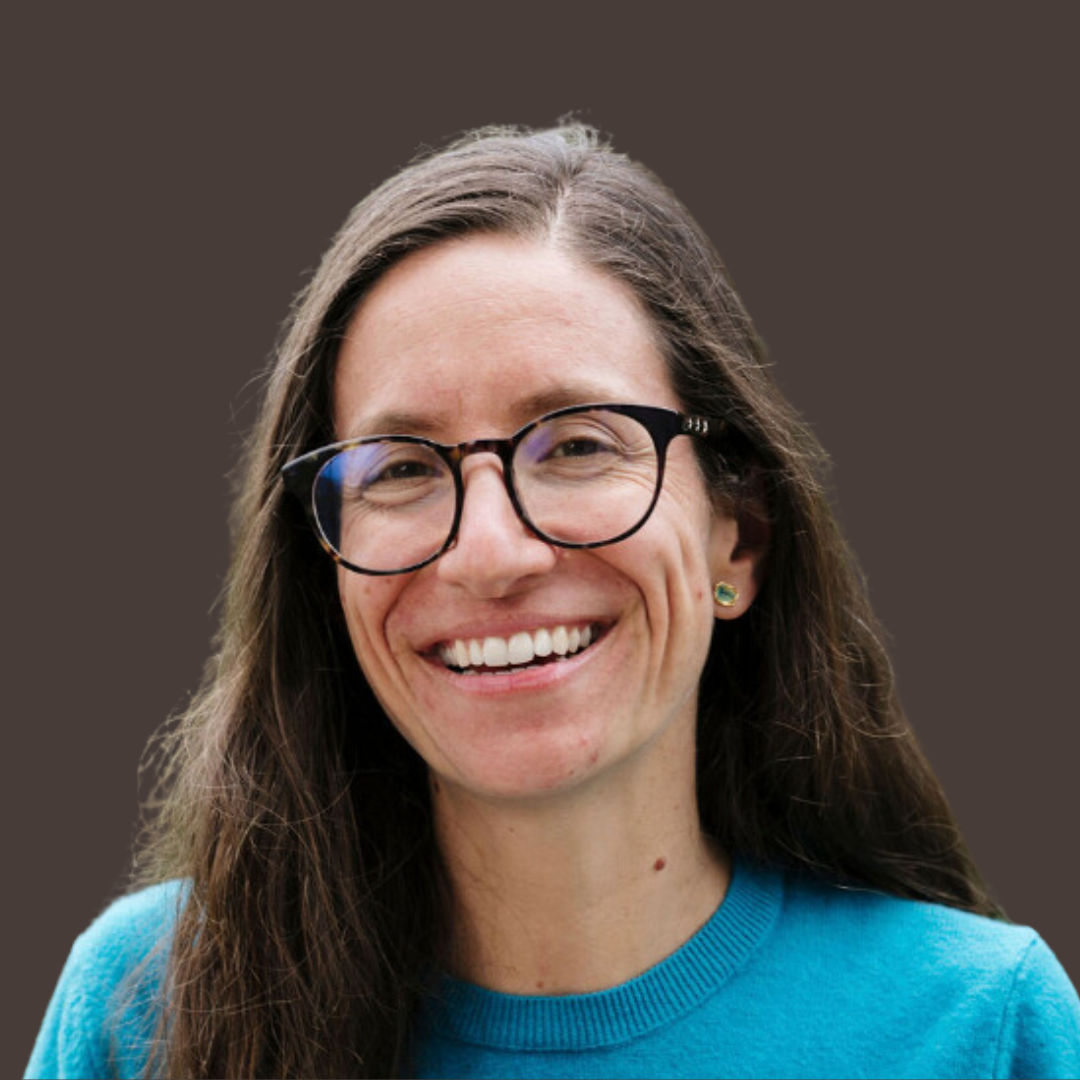
Isabel Cavelier Adarve
Guests
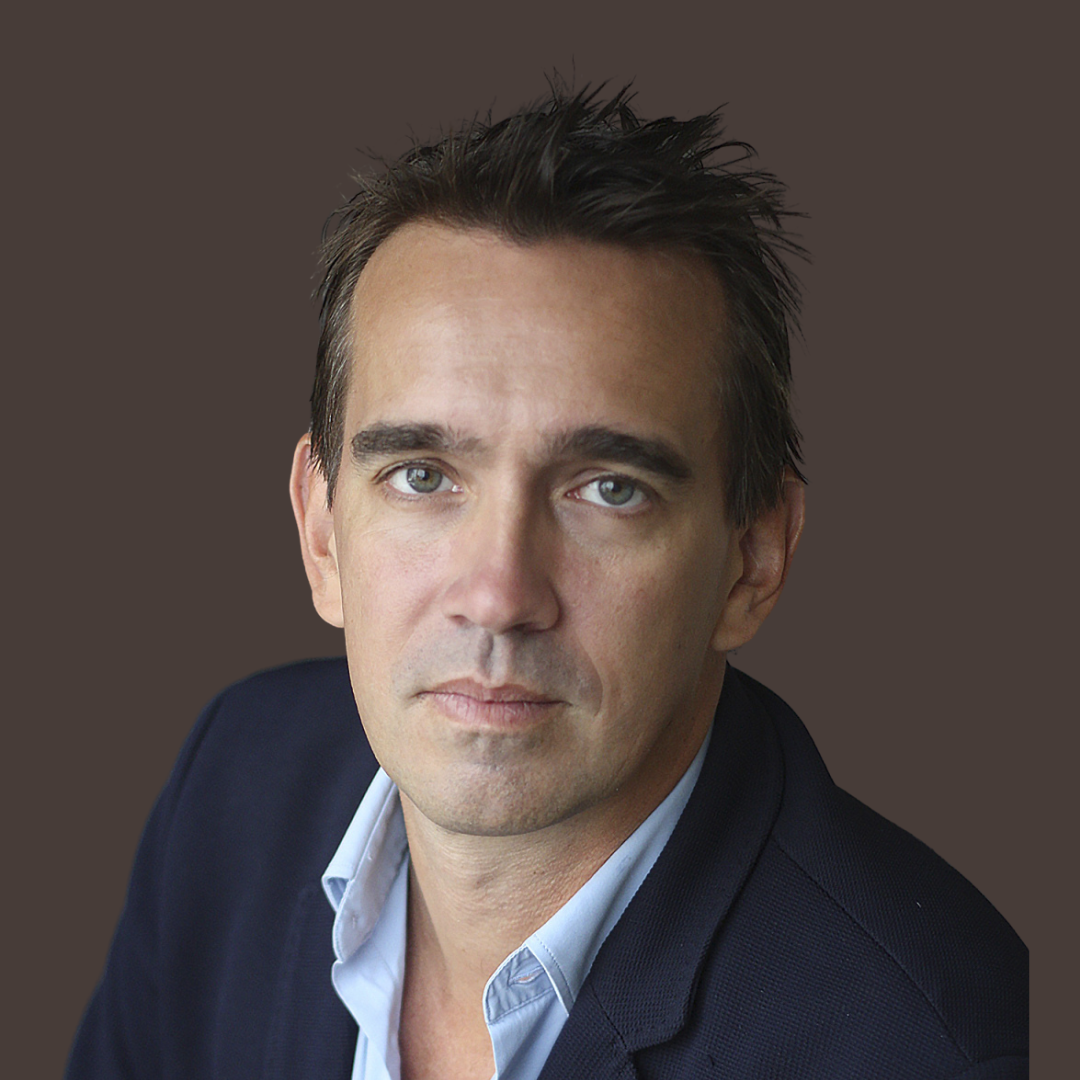
Peter Frankopan
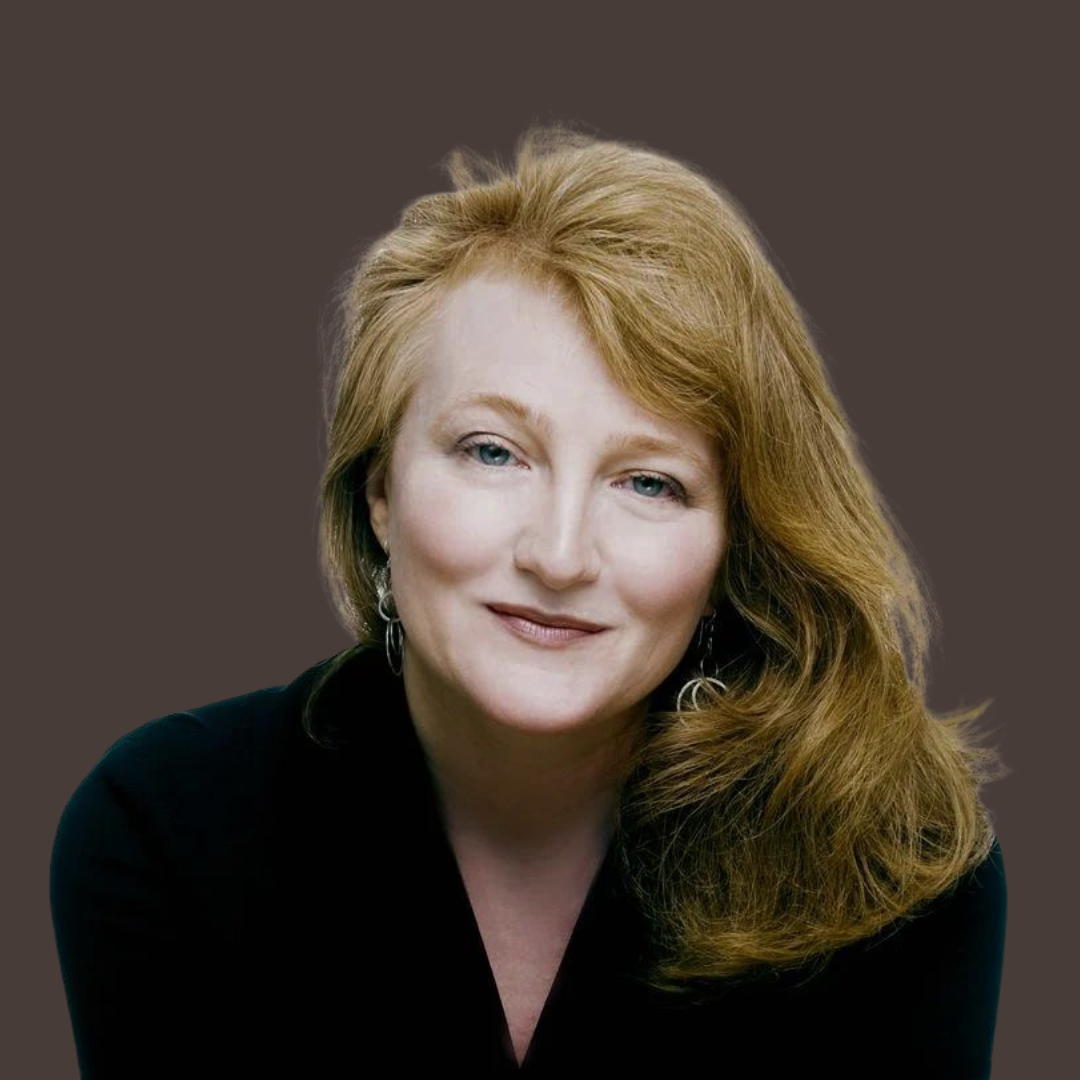
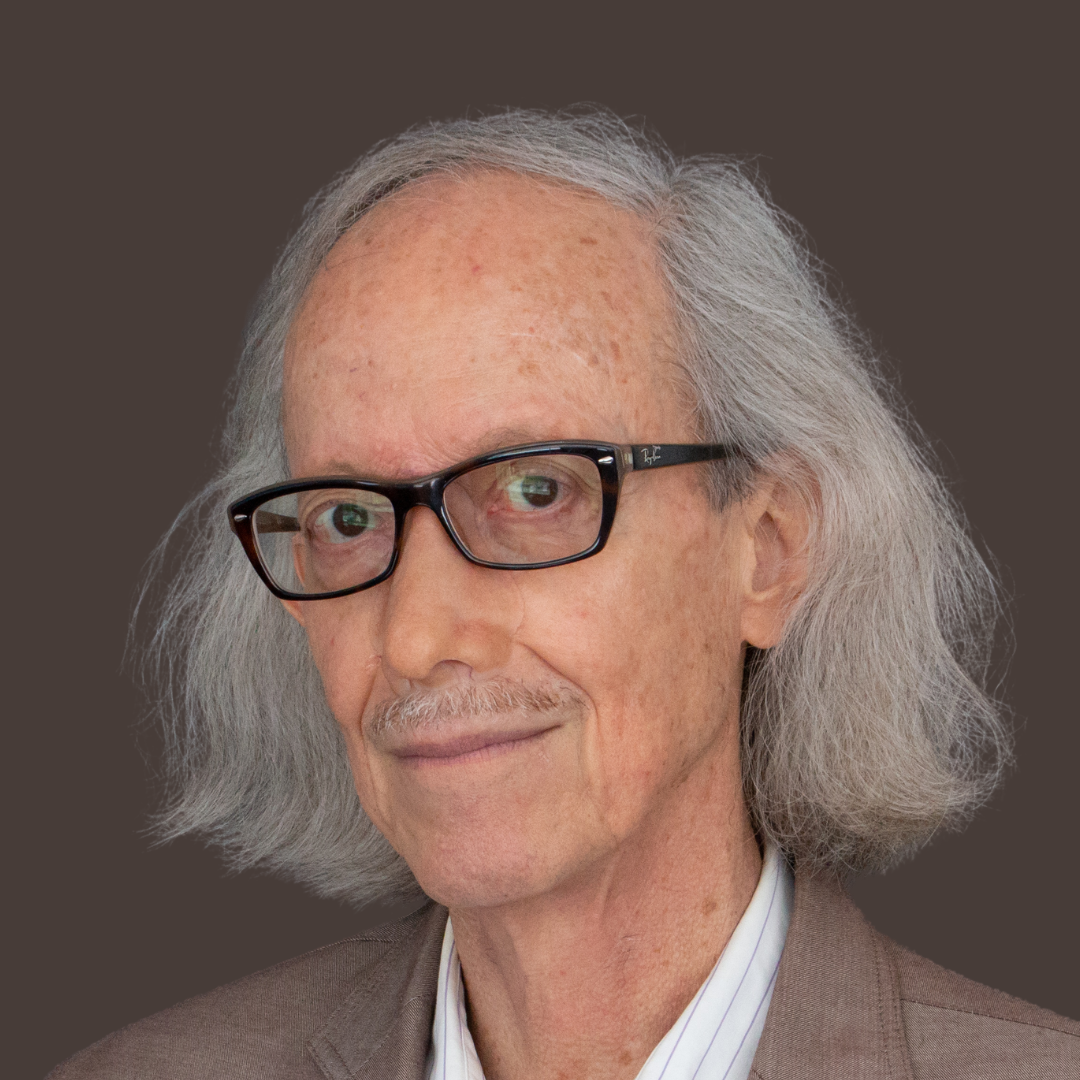
Arturo Escobar
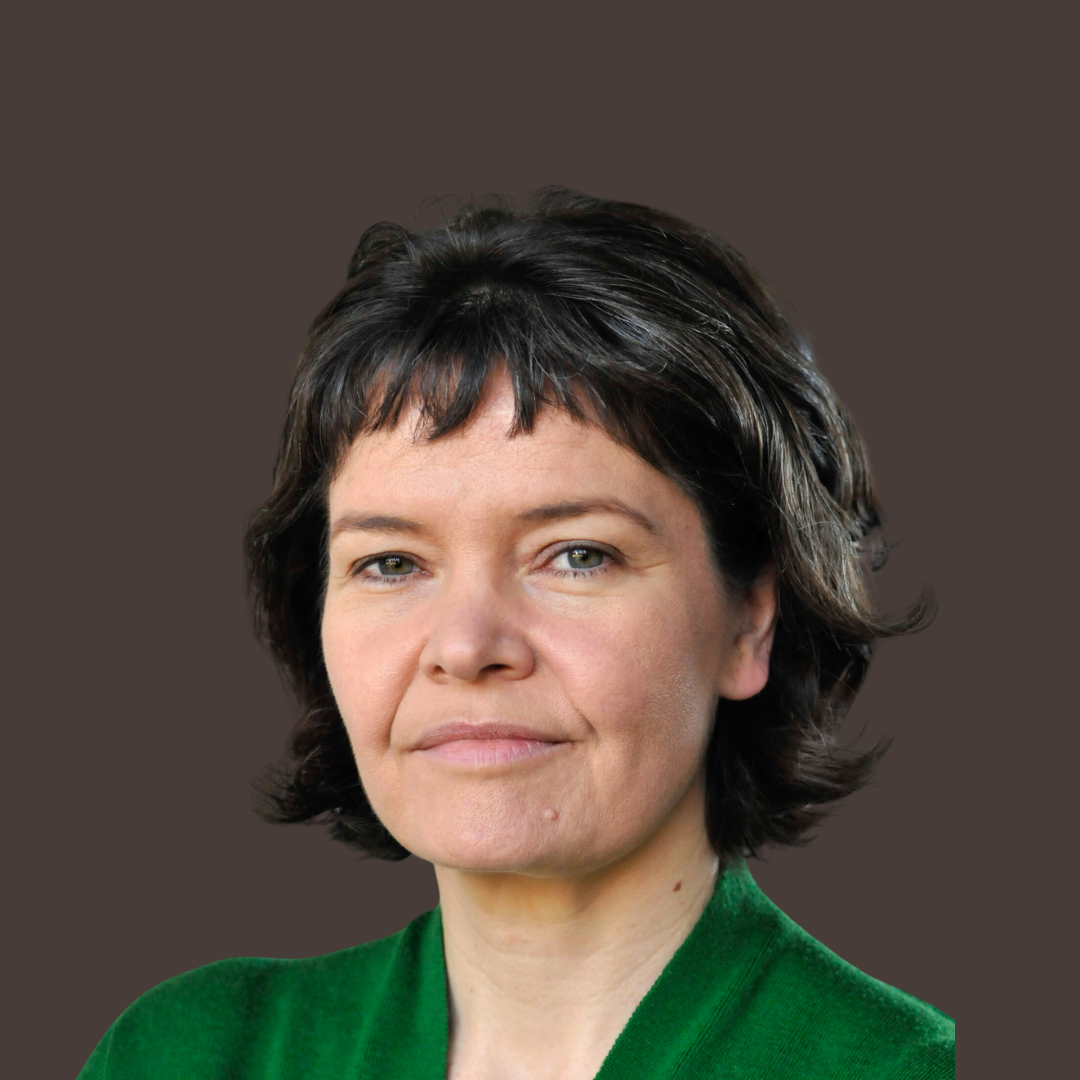
Kate Raworth
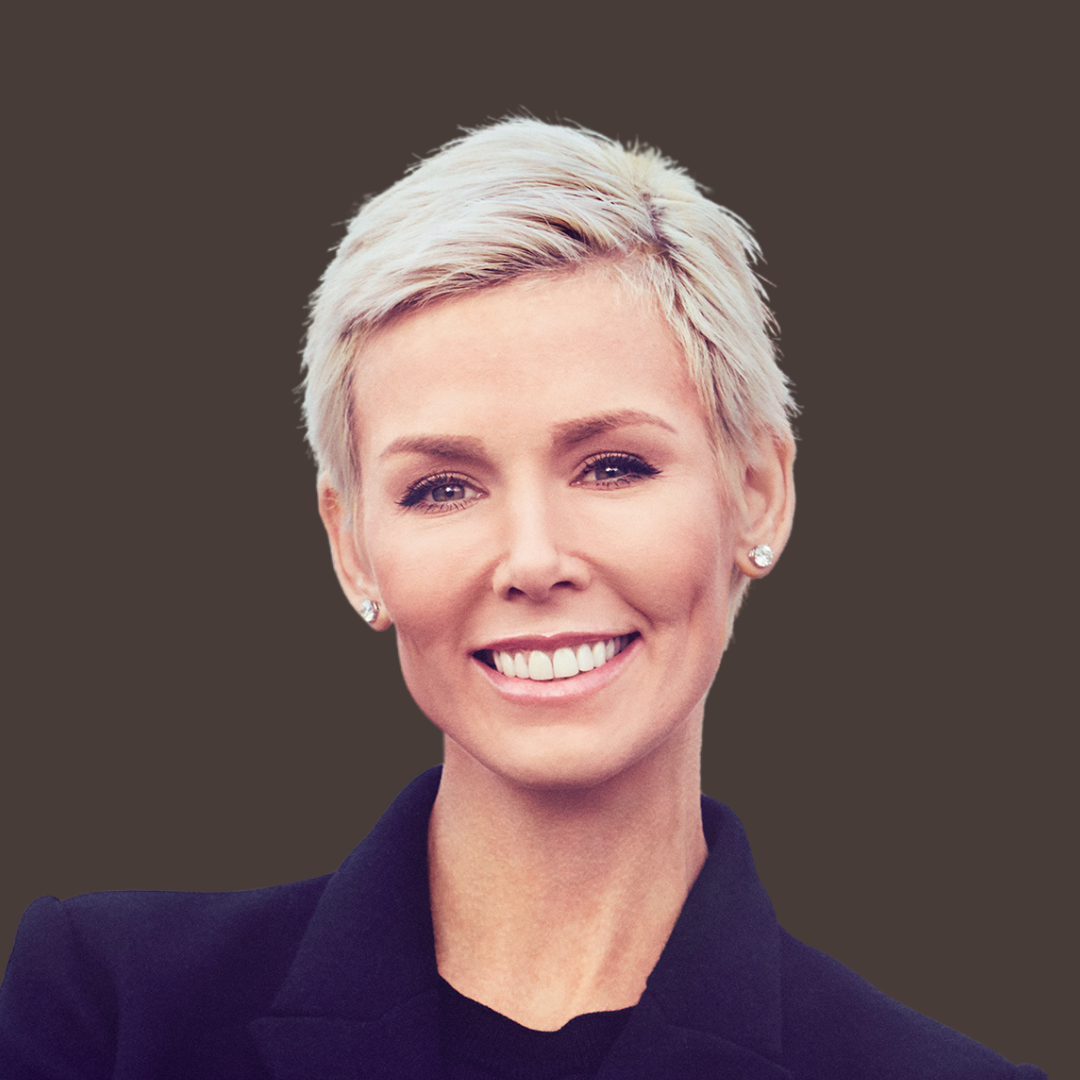
Dr. Gunhild Anker Stordalen
 Follow Dr. Gunhild Anker Stordalen on Instagram
Follow Dr. Gunhild Anker Stordalen on Instagram

